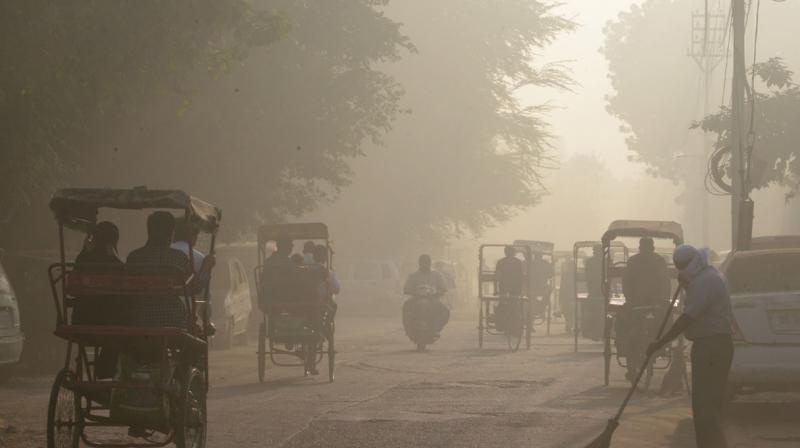Delhi: Air pollution at 'very poor' category, situation likely to worsen
SAFAR has predicted that air quality is likely to remain in the same category with a slight decline by tomorrow due to enhanced wind speed.

New Delhi: The alarmingly high rates of air pollution in the national capital have raised great concerns for the people as well as the state administration.
The present levels of particulate matter in the atmosphere are sufficient to contribute towards depleting health standards and high level of toxicity in the air with dangerous gases.
According to the Centre-run System of Air Quality and Weather Forecasting And Research (SAFAR), the Air Quality Index of the capital in the morning was recorded 346, falling in the 'very poor' category.
The AQI between the range of 51 to 100 is considered as satisfactory, 101-200 is moderate, 201-300 falls under the category of poor. 300-400 is considered as 'very poor' and range between 401-500 falls under the category as 'hazardous'.
The forecasting agency has also predicted that the air quality is likely to remain in the same category with a slight decline by tomorrow due to enhanced wind speed.
"However, it is likely to increase thereafter for the next two days to register in the upper range of very poor level. This deteriorating AQI on 2-3 December is mainly due to expected adverse meteorological conditions and a decline in wind speed. the contribution from long-range dust or stubble biomass is negligible," it added.
In order to combat the menace of air pollution, Environment Pollution (prevention and control) Authority (EPCA) had laid down a suggestion for the state governments of Delhi, Rajasthan, Uttar Pradesh, and Haryana, and the Centre, to follow priority measures to accelerate second generation reforms to protect public health in the affected regions.
In its letter, the EPCA had stated that a long-term favourable taxation policy should be implemented to promote CNG programme. Secondly, the organisation wants state administrations to impose an additional 30 per cent environment compensation charge on private diesel cars. Third, to increase parking charges effectively; demarcate legal parking areas and impose a higher penalty for illegal parking to cut congestion through on-street parking and fourth to implement daily air quality index and health advisory for public information immediately.
In its guidelines, the EPCA for the National Capital Region urged people to participate in combating the pollution crisis. In its note, the organisation has advised people to reduce the use of private vehicles. "Use public transport or other means. As per the latest report of the Union government, vehicles contribute some 40 per cent of the pollution in Delhi city," it stated.
"Ensure that we do not burn garbage and we report all instances of garbage burning and other pollution carefully and responsibly on the CPCB (Central Pollution Control Board) Facebook/Twitter accounts. It is essential that we control local sources of pollution at this time so that the crisis is managed," it added.

